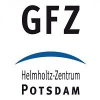- Perform data processing and analysis
- Develop empirical and machine learning-based models for hiss waves and exohiss waves in the Earth's inner magnetosphere
- Maintain data and code repositories
- Develop scientific visualizations of the results
- Document and test existing codes
- Adopt scientific codes for different scientific problems
- Conduct scientific research in the field of space physics
- Attend scientific meetings, including international conferences, and present the results
- Write manuscripts that will be published in peer-reviewed journals
- MSc in physics, computer sciences, geophysics, mathematics, or related natural sciences
- Experience in processing and analyzing satellite data
- Ability to work with large data sets
- Work experience with IT programming or scientific programming
- Advanced knowledge of the programming languages, such as Python, Matlab, IDL, Fortran
- Knowledge of Unix system
- Experience in developing numerical codes
- Experience with machine learning is a plus
- Ability to work within a team
- Attention to detail and organizational skills
- Excellent interpersonal and communication skills
- Ambitious and varied tasks in a dynamic and international research environment
- State-of-the-art equipment
- Public service benefits
- Extensive training opportunities
- Professional career advice offered by our in-house Career-Centre
- Flexible working hours and conditions
- Support with finding a good work-life balance offered by
- Institute day-care centre on site
- Working at the Albert Einstein science park on the Telegrafenberg in Potsdam
- Work place within walking distance of Potsdam main train station, or just a short ride on the shuttle bus Start date: 1st June 2024
PhD student - Potsdam, Deutschland - Helmholtz Centre Potsdam

Beschreibung
Reference Number
9260In this project funded by the European Research Council (ERC) Consolidator Grant, combining state-of-the-art measurements from multiple satellites, comprehensive models will be developed. We will improve our Full Diffusion Code by using the wave models developed in this project and calculate diffusion coefficients using more realistic background magnetic field and plasma density models for the first time. With the help of our sophisticated physics-based radiation belt dynamic model, fundamental acceleration and loss of relativistic electrons caused by different waves in the Earth's radiation belts will be quantified. We will systematically validate simulation results against satellite measurements to understand the competition between acceleration and loss caused by various types of plasma waves.
All these improvements will be critically important for answering the overarching scientific question: Why do the Earth's radiation belts respond differently to geomagnetic storms which have approximately the same intensity? This project will open new horizons for understanding, predicting, and specifying the hazardous space environment.
Your responsibilities:
The successful candidate should have extensive experience in data analysis and preferably also with machine learning and scientific programming.
Job responsibilities will include a variety of tasks related to satellite data processing and scientific programming, including but not limited to:
Your qualifications:
What we offer:
Fixed-term: 3 years
Salary: The position is classed as salary group 13 according to "TVöD Bund (Tarifgebiet Ost)". The salary group is determined on the basis of the Collective Wage Agreement and the respective personal qualifications.
Working hours: Part-time 75% (currently 29.25 h/week)
Place of work: Potsdam
Have we piqued your interest?
If so, we look forward to receiving your application by 29th April 2024 . Please use our online application form only.